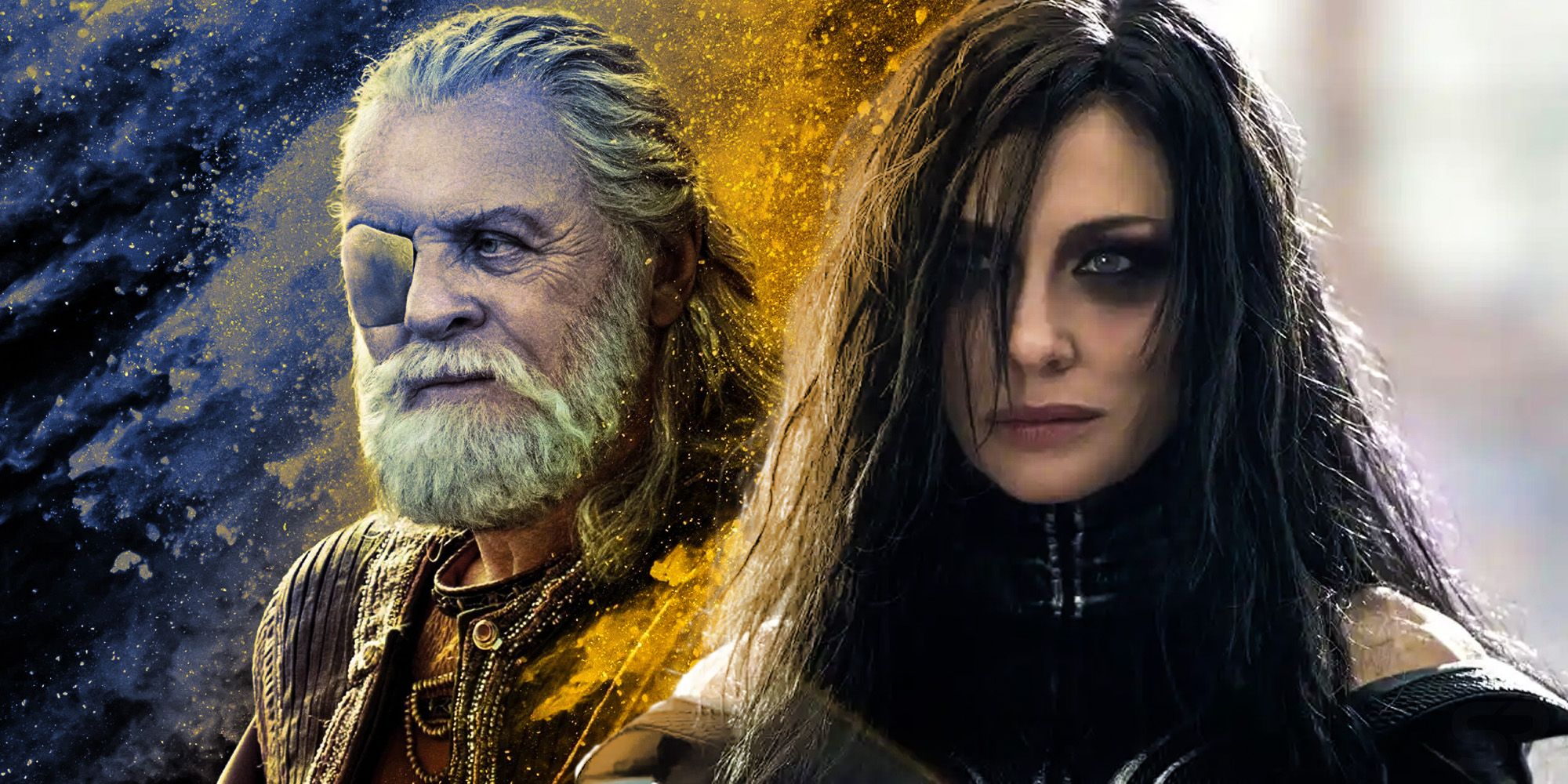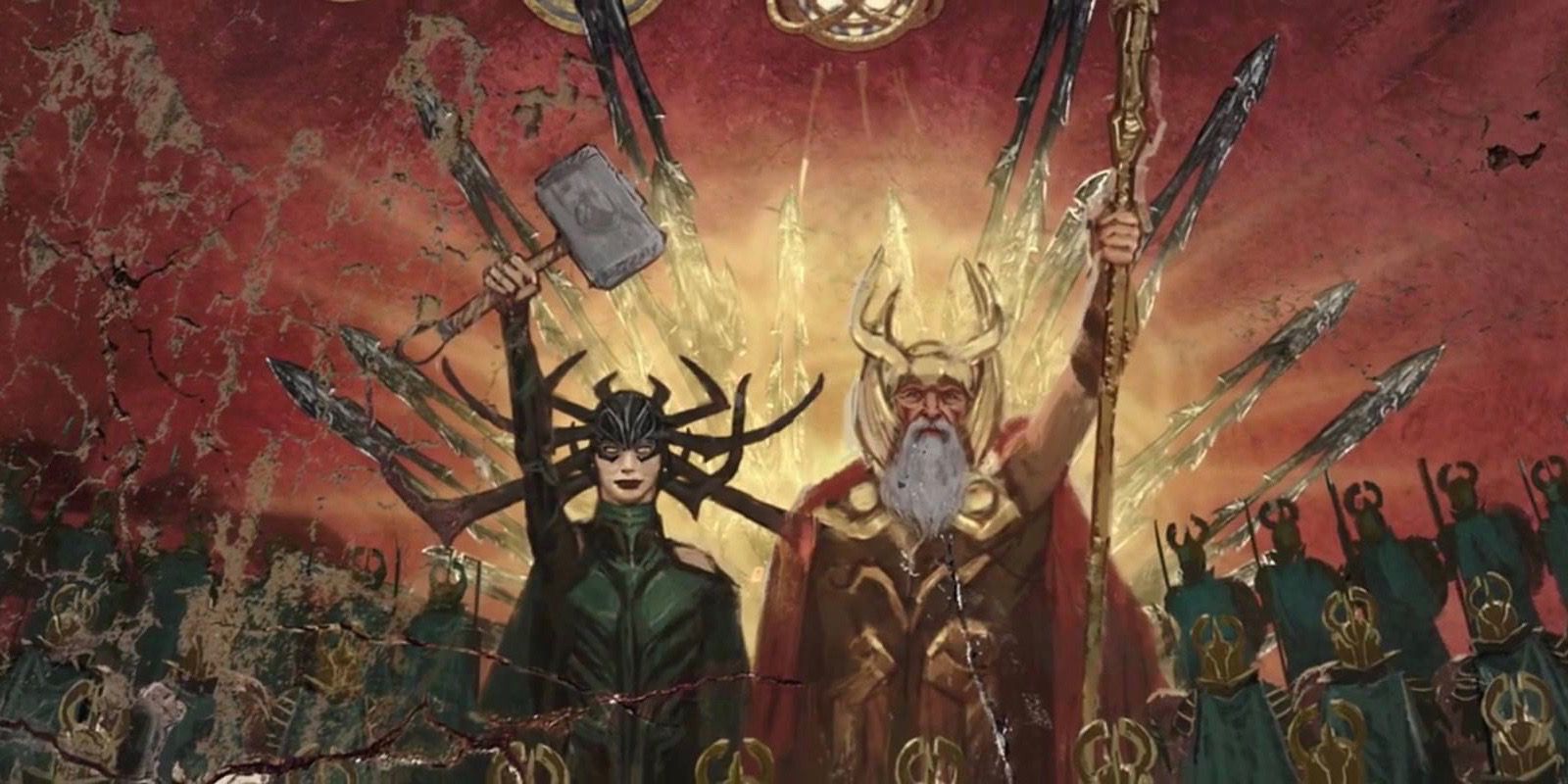Though Hela, the goddess of death and Odin’s firstborn child, is portrayed as Thor and Loki’s warmongering sister who attempts to claim Asgard's throne within Thor: Ragnarok, Hela isn't the movie's real villain. Odin tells his sons at the beginning of Ragnarok that he imprisoned Hela in Hel after her violent appetites became too difficult to control, but Hela’s own perspective of the past, along with Asgard’s concealed origins, suggest that Hela was more likely a victim of Odin’s ambition.
Throughout the Thor franchise within the MCU, preserving peace throughout the universe becomes Asgard's legacy. In Thor, Odin explains how Asgard’s armies under his command protected Earth, known as Midgard, from a Frost Giant invasion, claiming that Asgard’s warriors “brought peace to the universe” and that Asgard itself is a “beacon of hope.” Even before Odin became the king of Asgard, it’s explained in Thor: The Dark World that Odin's father, King Bor, also protected the universe from Malekith and the Dark Elves, who wanted to return the universe to total darkness using the Aether, a.k.a. the Reality Stone. While the Asgardians seemed to have a reputation as peacemakers across generations, Hela reveals in Ragnarok that Asgard had an alternate history after Odin became king that depicts something very different.
Odin could be seen as the true villain of Ragnarok because he raised his daughter Hela to be a ruthless warmongering warrior and then abandoned her. After murdering Asgard’s army in Ragnarok, Hela unveils a second fresco hidden in the throne room that depicts Odin and Hela waging war against the inhabitants of the nine realms. “I was [Odin's] weapon in the conquest that built Asgard’s empire,” says Hela. “One by one, the realms became ours. But then, simply because my ambition outgrew his, he banished me, caged me, locked me away like an animal.” Since Hela fought in long, brutal, and bloody battles over centuries until they'd conquered all nine realms, war and violence became the only lifestyle Hela knew, which was encouraged by her father. With this in mind, Hela can’t exactly be blamed for her ruthless ambition to rule the universe because she was only doing what she was trained to do her entire life.
Odin’s treatment of Hela during the wars' aftermath paints him as a dictator; he used Hela to build Asgard’s empire and then punished her for being exactly what he made her to be. When Hela reveals Asgard’s true history, the fresco insinuates that Asgard’s Royal Palace was built from slave labor and was decorated with gold that was stolen from other realms during their conquest. Since Odin never returned Asgard's stolen riches, it seems more likely that Odin ended the wars because they’d served their purpose. Taking this into consideration, Odin’s actions towards Hela become more nefarious because he exploited Hela for her brutality and strength, and then discarded her once his goals were accomplished.
While Odin acts as a bad influence on his daughter by teaching her to value war over peace, he certainly learns from his past mistakes and passes down a different lesson to Thor and Loki. In Thor, Odin teaches the young princes that “a wise king never seeks out war, but he must always be ready for it.” Living by that principle, Odin holds his children accountable when they unjustly seek out war. In Thor, Odin banishes Thor to Earth after he attempts to initiate a war with the Frost Giants. Odin similarly imprisons Loki after he leads a Chitauri invasion on Earth in The Avengers. While Odin responsibly administers consequences for his children's crimes of war, the unjust part of Thor: Ragnarok is that he never truly pays for his own.








